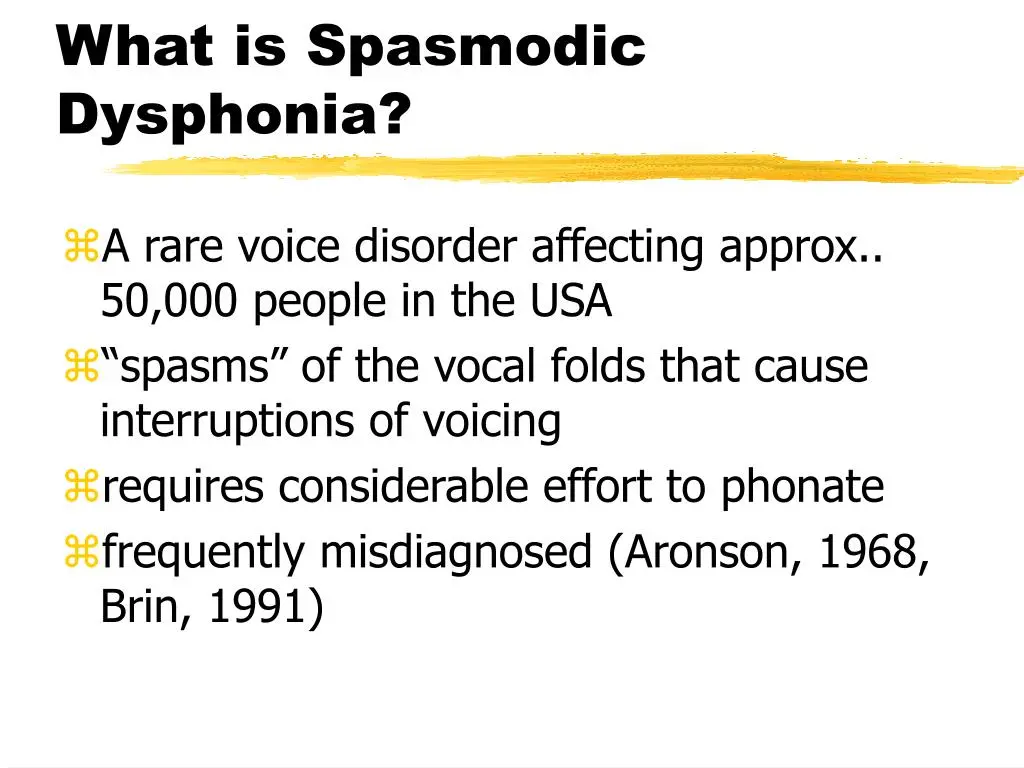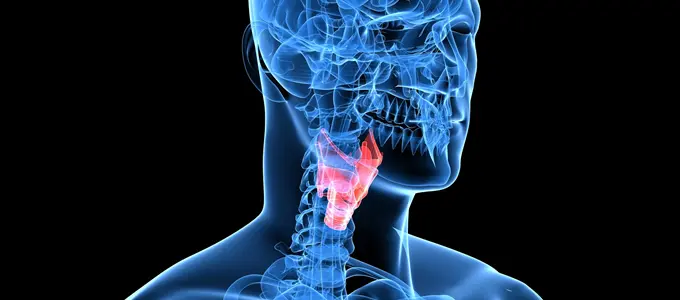Can Spasmodic Dysphonia be Cured?
No (manageable)
No cure; management aims to improve voice quality, reduce spasms

What is Spasmodic Dysphonia?
Spasmodic dysphonia is a voice disorder characterized by involuntary spasms of the muscles controlling the vocal cords. Treatment may include speech therapy, botulinum toxin injections, or, in some cases, surgery. Regular monitoring is important for assessing voice function and adjusting treatment as needed.

Clinical Aspects

Characteristics
Voice disorder characterized by involuntary muscle spasms affecting the vocal cords

Symptoms
Strained or strangled voice, difficulty speaking

Diagnosis
Clinical evaluation, sometimes imaging

Prognosis
Variable, depends on treatment response

Complications
Impaired speech, potential for social impact
Etiology and Treatment

Causes
Unknown (neurological factors)

Treatments
Botulinum toxin injections, voice therapy

Prevention
Botulinum toxin injections, voice therapy
Public Health and Patient Perspectives

Epidemiology
Common, affects the muscles controlling speech

Patient Perspectives
Lifelong management tailored to symptoms
Please note that the information provided is based on the current understanding of these conditions and treatments may vary based on individual circumstances. Always consult with a healthcare provider for accurate information.
Share: